Henry Sproatt
Henry Sproatt (June 14, 1866 – October 4, 1934) was a Canadian architect who was prominent during the early 20th century. Born in Toronto, he trained in Europe and in New York City.
Henry Sproatt | |
|---|---|
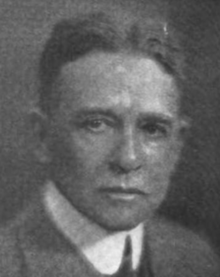 | |
| Born | June 14, 1866 |
| Died | October 4, 1934 (aged 68) Toronto, Ontario |
| Nationality | Canadian |
| Occupation | Architect |
| Practice | Sproatt & Rolph |
He formed a partnership in 1890 with another celebrated architect, John A. Pearson, and with Frank Darling in 1893. Sproatt parted ways in 1896 and formed a new firm in 1899 with Ernest Ross Rolph (1871–1958), named Sproatt & Rolph.
Sproatt was a Fellow of the Royal Institute of British Architects, and he died in Toronto in 1934. The firm continued under Ernest Rolph until 1942 and was then taken over by his son, Charles Beverley Sproatt (1896–1976), from 1958 until 1970.
In recognition of his architectural achievements the University of Toronto conferred the honorary degree of Doctor of Laws to Sproatt in 1920.
Notable projects
| Building | Year Completed | Architect | Style | Source | Location | Image |
|---|---|---|---|---|---|---|
| Victoria College | 1910 | Henry Sproatt | Neo-Gothic | 15, W | 91 Charles Street West, University of Toronto, St. George campus | |
| Hart House | 1911–24 | Henry Sproatt - Engineer Ernest Rolph | Collegiate Gothic | 15, W | 7 Hart House Circle, University of Toronto, St. George campus |  |
| National Club | 1906 | Henry Sproatt | Edwardian Classicism | 303 Bay Street, Toronto | 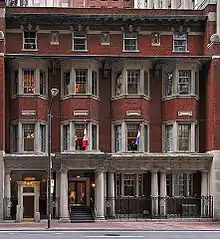 | |
| North wing of the Chester D. Massey House | 1907 | Henry Sproatt | Neo-Gothic | 519 Jarvis Street, Toronto | ||
| Bishop Strachan School | 1912 | Henry Sproatt | Neo-Gothic | 298 Lonsdale Road, Toronto | 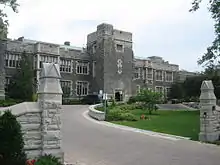 | |
| Burwash Hall | 1911–13 | Henry Sproatt | Neo-Gothic | 70 Charles Street West, Victoria College, University of Toronto, St. George campus | 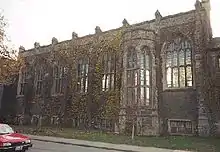 | |
| Ontario Club | 1913 | Henry Sproatt | Neo-Gothic | Wellington Street West at Jordan Street, Toronto | ||
| Royal Canadian Yacht Club | 1920 - 1922 | Sproatt and Rolph | 2 Chippewa Avenue, Toronto Island, Toronto | 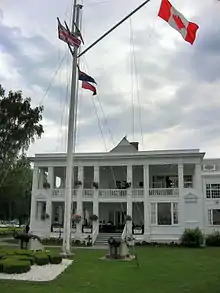 | ||
| Soldiers' Tower | 1924 | Henry Sproatt | Neo-Gothic | 7 Hart House Circle and Tower Road, Toronto | 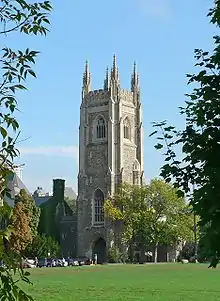 | |
| Manulife South Tower | 1926 | Henry Sproatt | Neo-Gothic 56 M, 14 stories | 200 Bloor Street East, Toronto | ||
| Thistletown Regional Centre | 1927-1928 | Henry Sproatt | Modern Classical | 51 Panorama Court, Etobicoke | ||
| College Park | 1928–1929 | Henry Sproatt | Moderne Classicism | 424 Yonge Street, Toronto | 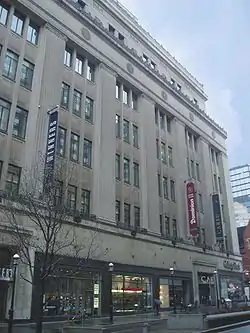 | |
| Canada Permanent Trust Building | 1930 | Henry Sproatt | Neo-Gothic 77 Meters, 18 stories | 320 Bay Street, Toronto | 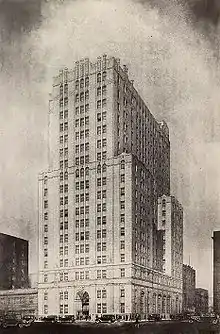 | |
| Fairmont Royal York Hotel (with architects Ross and Macdonald) | 1929 | Henry Sproatt | Château style | 100 Front Street West, Toronto |  | |
| Canada Life Building | 1931 | Henry Sproatt | 87 Meters, 15 stories | 330 University Avenue, Toronto | 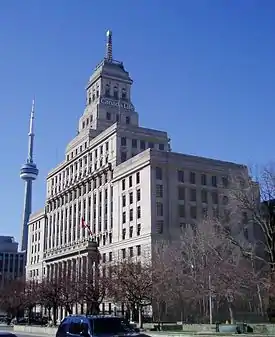 | |
| National Research Council (Canada) Laboratories, | 1932 | Henry Sproatt | 100 Sussex Drive, Ottawa, Ontario |  | ||
| Knox Presbyterian Church | 1932 | Henry Sproatt | Neo-Gothic | 120 Lisgar Street, Ottawa |  | |
| Emmanuel College, Toronto | 1932 | Henry Sproatt | Neo-Gothic | 75 Queen's Park Crescent East, Toronto | 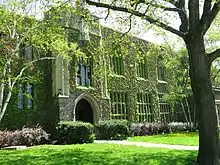 | |
| Princess Margaret Hospital (Toronto) | 1935 | Henry Sproatt | 72 Meters, 18 stories | 610 University Avenue, Toronto | 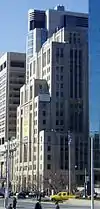 | |
External links
| Wikimedia Commons has media related to Henry Sproatt. |
- Henry Sproatt
- Sproatt and Rolph in The Canadian Encyclopedia
- Sproatt and Rolph
- Soldier's Tower
- Hart House, U of T
- Knox Presbyterian Church and its *History
- Request for Heritage Review TRC
- University of Toronto Honorary Degree Recipients 1850 - 2016
| Cultural offices | ||
|---|---|---|
| Preceded by George Horne Russell |
President of the Royal Canadian Academy of Arts 1926-1929 |
Succeeded by Wylie Grier |